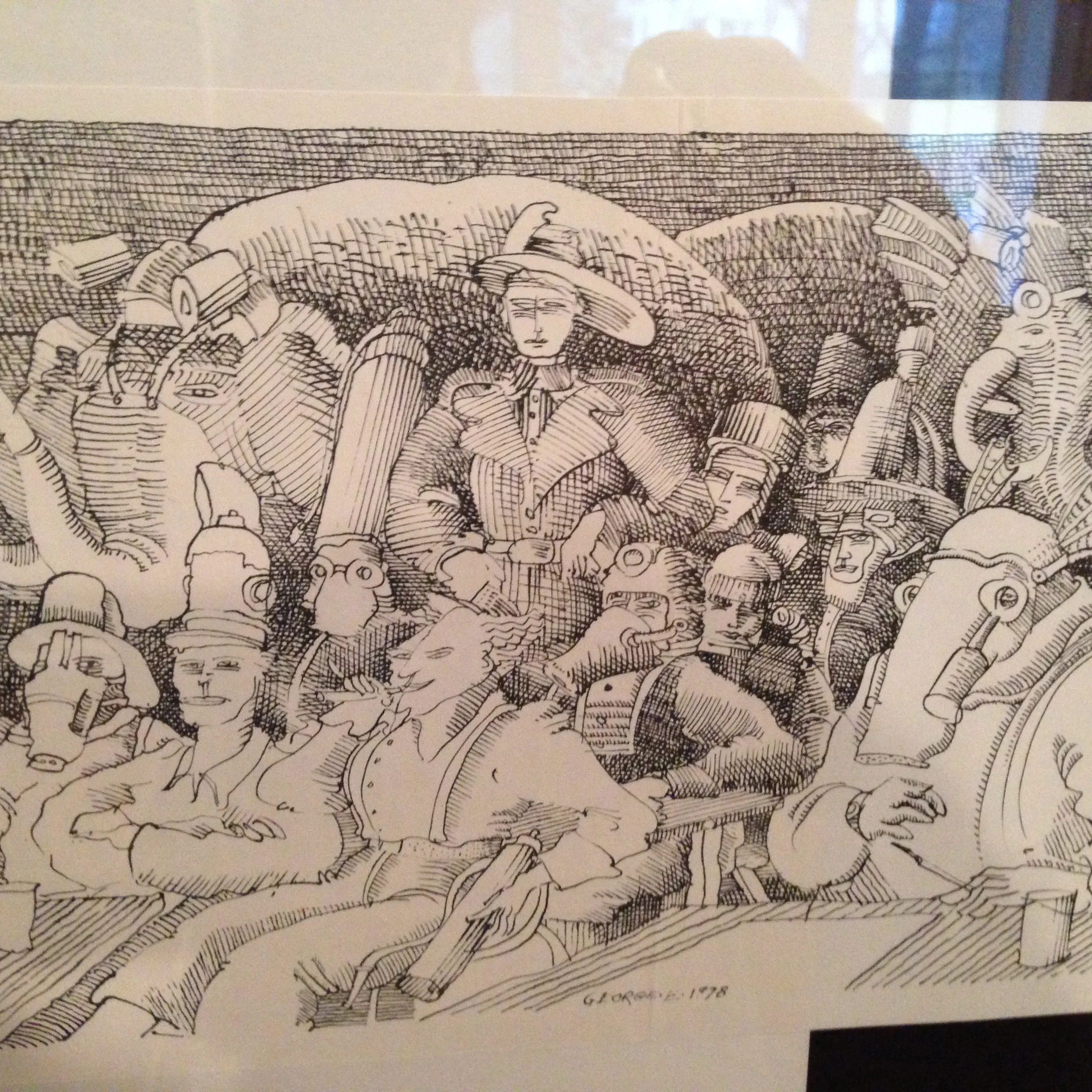The classroom door is locked
(the firemen and I keep odd hours)
Desperate men
They offer to break it down with axes
I find the custodian playing cards in the alley
With an unemployed Ph.D. who is trying
To stay close to academics
And we all tumble in
To watch fuzzy blue slides plastered
On a bleak green junior college wall.
The snort and cavort at “Girl Before A Mirror”
They’re used to more literal dismemberments
Of reality
“Is she pregnant or just fat?”
Asks the wise-ass fireman.
“She’s pregnant with meaning,”
I slyly rejoin.
“My kid could draw that good,”
Growls the football-playing fireman
Who wants to go shoot pool.
The economically cynical fireman asks,
“He gets a million bucks for this?”
And the neo-Marxist fireman replies,
“It’s all fixed.
They choose great artists at random
Or through bribery.”
For firemen, reality has only two levels:
The raw and the cooked
And this strange, broken picture seems to them
Only half-baked.
I try to explain the liberation of form,
The influence of modern physics and African art,
The multi-dimensionality of color
But they keep asking, “what is it?”
I finally give in and say
“it’s a woman looking in a mirror.”
The brutally honest social realist fireman says
“I see five boobs and a broken nose.”
We talk (I talk) about ideas of reality
Angles of vision, dreams, levels of reality,
But we keep coming back to feeling:
They don’t have any for this painting.
Firemen are creatures of immediacy:
roof-walkers, heart-starters,
Flame-killers, smoke-breathers,
Answers to the ever-popular question:
“Save me?”
Athletes in action
Staring at a message from Paris, 1932
Which might as well be from another universe.
With authority, the literary critical
Fireman concludes,
“It’s like a cartoon that’s not funny.”
The tabula rasa fireman asks plaintively then,
“Why is he good?”
The question is not simple.
It hangs in the fuzzy blue air
And I wish he had asked the same
About Fran Tarkenton or Mick Jagger.
I gulp and look out the Venetian blinds
Wishing I was hitting two soft yellow tennis balls
With that girl strolling by in the twilight.
Like these students of fire science
She never sees another person in the mirror
Always the same solid pre-medical
Technologist body/mind.
I wonder if I can skip directly to Andrew Wyeth
Or perhaps to a discussion
Of “The Towering Inferno”.
“If Picasso’s good, then the world is crazy,”
Says the radical phenomenologist fireman.
He’s good, all right, and the world
Is not as it seems.
The burnt stairway does not hold;
The doused embers still smolder
Until drenched to the core
Hollowed out, emptied, laid bare
The blind fireman has been listening
Eyes covered with huge white bandages
Where he splashed lye last week.
“I don’t think the woman
Likes what she sees,” he says
A glimmer of fireman feeling
Enough, at this point
Too much analysis can lose the world
And maybe I
Can use some fireman eyes.
Class dismissed. “Watch yourselves
This week,” I add
“Don’t break any mirrors
To save the walls.”
But they are already halfway
To their game of pool, and I’m
On my way home to smoke in bed.
Published in Daemon, 1978 (Illustration by George Evelyn)
